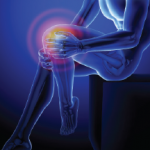 When patients present with knee pain and a degenerative meniscal tear, they are offered either nonoperative management or arthroscopic meniscal surgery. In many cases, surgeons treat meniscal tears with resection, debridement, repair or replacement.
When patients present with knee pain and a degenerative meniscal tear, they are offered either nonoperative management or arthroscopic meniscal surgery. In many cases, surgeons treat meniscal tears with resection, debridement, repair or replacement.
Paul Monk, DPhil, a clinical lecturer in orthopedics, and colleagues from the University of Oxford in the U.K. have concluded that little evidence exists to support the use of arthroscopic meniscal surgeries over nonoperative therapy. They published the results of their systematic review online July 18 in the American Journal of Sports Medicine.1 The researchers focused their efforts on determining the effectiveness of arthroscopic surgery for meniscal injuries in all populations. They identified nine randomized controlled trials and eight systemic reviews. The studies were heterogeneous, and thus, the authors were unable to perform a meta-analysis across the different studies. Instead, they produced a descriptive summary of the results, as well as a quality assessment.
Their review yielded no clear evidence of benefit of arthroscopic meniscectomy over nonoperative treatment. They also noted that there were no randomized controlled trials that directly compared meniscal repair with nonoperative treatment. They did find, however, evidence that some patients with resistant mechanical symptoms who fail nonoperative management may benefit from meniscal debridement.
Descriptive Summary of the Data
Seven randomized controlled trials and one systemic review presented evidence for the use of partial meniscetomy. Three of the randomized controlled trials compared partial resection with physical therapy, two randomized controlled trials used sham surgery, one randomized controlled trial compared partial resection with total resection and one randomized controlled trial compared partial resection with steroid injection. The systemic review included seven trials and compared arthroscopic medial meniscus resection with any form of nonoperative treatment. In all of these studies, the overall differences between groups in long-term functional outcomes were not statistically significant. Specifically, the three randomized controlled trials that compared meniscal debridement with physical therapy found no difference between surgery and physical therapy. In one study, the patients with meniscal tears also had osteoarthritis, and these patients also did not benefit from arthrospcopic partial meniscectomy when compared with individuals who received physical therapy.
Some of the randomized controlled trials had a crossover design whereby approximately one-third of patients who were assigned to physical therapy also underwent partial meniscal resection. The patients who crossed over between arms of the study experienced functional improvement following surgery. However, the functional improvements were ultimately the same between the two groups (physical therapy alone and physical therapy plus surgery).


